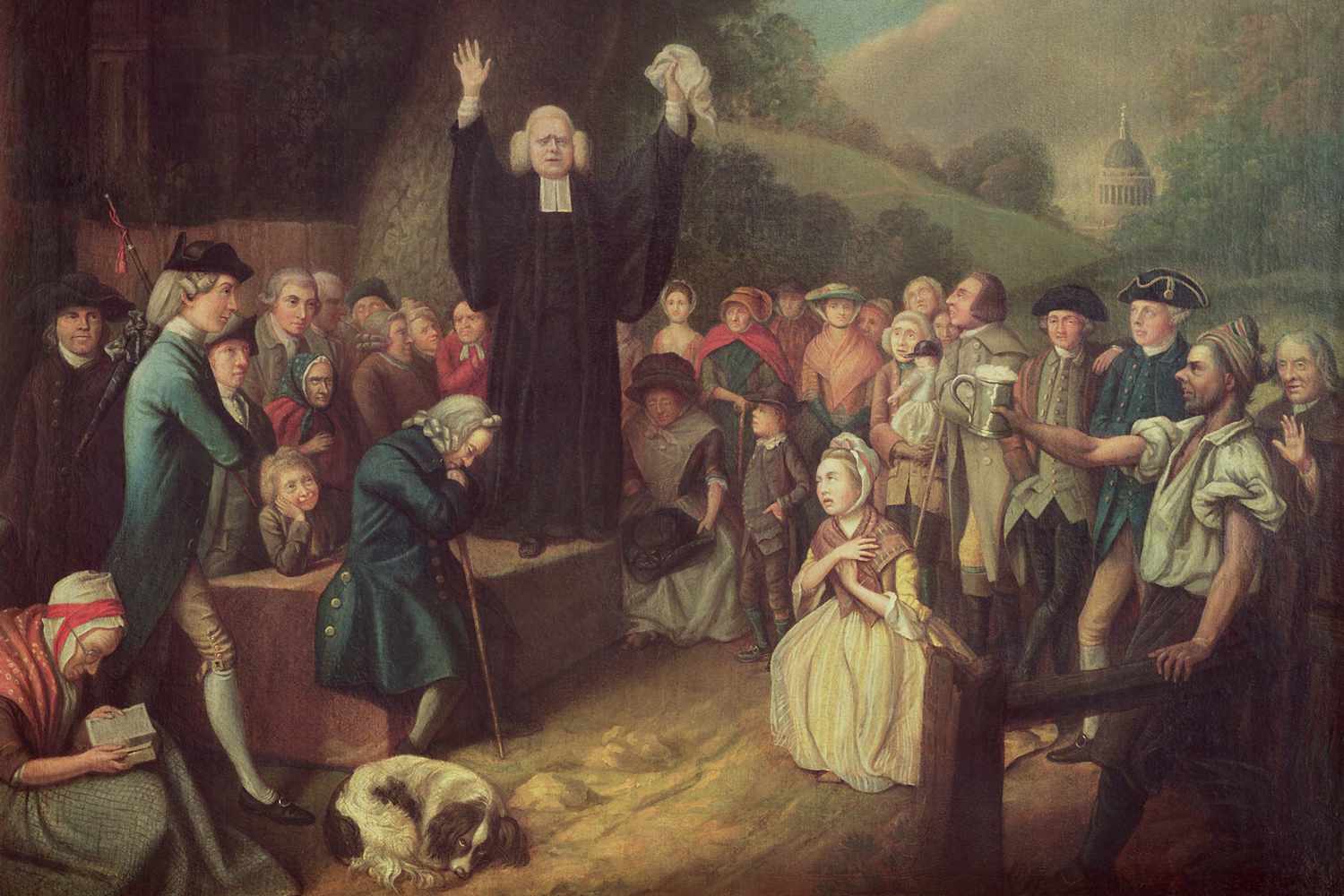Preaching Doctrine – J. Carter Swaim

The English word doctrine is derived, as is the word doctor, from the Latin docere, meaning “to teach.” Doctrine, presumably, is what is taught by a doctor, or learned man. Doctrine is the ordered arrangement of those truths by which the church lives. Doctrine differs from dogma in that the latter demands acceptance on the grounds of its being authoritatively delivered. The former invites the kind of consideration which will lead to acceptance of the truths laid down.
Both the philosopher and the politician use the word doctrine. Since the year 1823 the Monroe doctrine has been a cornerstone of American foreign policy. The teacher of philosophy acquaints his students with the doctrines of Aristotle, Epictetus, Pythagoras. The preacher’s concern is with doctrines by which all these must be judged.
One of the grimmest things described by the prophet Isaiah is that men and women accepted popular catchwords as embracing all the meaning of life; the people, he says, “honor me with their lips, while their hearts are far from me, and their fear of me is a commandment of men learned by rote” (29:13 R.S.V.). Noting how the Pharisees assigned the highest place to human tradition, Jesus found Isaiah’s words still applicable, “in vain do they worship me, teaching as doctrines the precepts of men” (Matt. 15:9, R.S.V.).
Some popular notions are worse than merely human. People are sometime found “giving heed to deceitful spirits and doctrines of demons” (1 Tim. 4:1). The angel-worship and ascetic practices which flourished in Colossae Paul emphatically rejects. These are “human precepts and doctrines” (Col. 2:22), and those whom Christ has delivered from darkness ought not any longer to live as if they “still belonged to the world” (Col. 2:20).
- Jesus Proclaimed Doctrine. Jesus was from the outset, a proclaimer of doctrine; he “came into Galilee, preaching the gospel of God, and saying, ‘The time is fulfilled, and the kingdom of God is at hand’ ” (Mark 1:14f.). 2 Peter 1:21 assures us that “men moved by the Holy Spirit spoke from God.” Perhaps there is no better place to begin in expounding the doctrine of Scripture. Luke 24:44 indicates that Christ has come to fulfill everything written about him “in the law of Moses and the prophets and the psalms.” This indicates the three canons of the Hebrew Bible, with psalms representing the Writings. In the Psalms Jesus found the pattern for his Beatitudes, and a Psalm phrased his feelings on the cross. In Matthew 5:17 Jesus announces that he has come to fulfil “the law and the prophets.” The former has often been emphasized at the expense of the latter. The author of the letter to Hebrews stresses the way in which Christ fulfilled the law. Perhaps we do not often enough draw attention to the way in which he fulfilled the prophets. We rightly note the animal types of sacrifice, but too often neglect the way in which Micah’s concern for the poor and Amos’ demand for justice and Hosea’s concern with the family also found their fulfilment in him. Isaiah’s picture of the suffering servant and Jeremiah’s doctrine of the New Covenant also foreshadowed Jesus’ Messianic office.
- The Doctrine of the Ministry. It is important for the preacher, as well as for his hearers, that the doctrine of the ministry should be dealt with from time to time. The call of Elisha, the call of Isaiah, the call of Jeremiah all serve to introduce the doctrine of divine vocation. Habakkuk standing on his watchtower, Jeremiah and the wake tree, Revelation’s man with the measuring rod all suggest facets of the minister’s work. Ephesians 4:11 describes four (not five) kinds of ministry. Apostles, prophets, and evangelists were itinerants, while the pastor-teacher was settled in a particular place. The doctrine of the ministry leads on to an inclusive doctrine of Christian vocation, in which all men are summoned not only “to be ready for any honest work” (Titus 3:1), but to “press on toward the goal for the prize of the upward call of God in Christ Jesus” (Phil. 3:14).
- Treatment of Doctrines. In treating of great doctrines, it is desirable to deal at different times with the various places in which they are taught. Paul assures us in one of the best known passages of the New Testament that “faith, hope, love abide.” It is impressive to note this same trinity in another context, such as 1 Thessalonians 1:3, where Paul, praising his friends in Thessalonica, remembers their “work of faith and labor of love and steadfastness of hope.” The Trinitarian formula, which did not become dogma until the fourth century, is implicit in the great commission (Matt. 28:19), and in the apostolic benediction (2 Cor. 13:14). It is impressive also to note how it is embedded in such a passage as 1 Peter 1:1, where the letter is addressed to the exiles of the Diaspora “chosen and destined by God the Father and sanctified by the Spirit for obedience to Jesus Christ.”
One’s sermons on doctrine may predominantly start in the New Testament, but that is no reason to neglect the Old. There is indeed something to be said for a New Testament approach to the Old Testament. Genesis tells of Abraham’s departure from Ur of the Chaldees and of the vicissitudes which led to his becoming the father of many nations.
It is the New Testament, however, which enables the Christian to see Abraham in true perspective. Hebrews 11:8 tells how “he went out not knowing where he was to go.” James 2:23 records that his faith “was reckoned to him as righteousness; and he was called the friend of God.” Galatians 3:7 makes it clear that now “it is men of faith who are the sons of Abraham.”
Genesis records the disaster which overtook our race in the days of Noah. Luke 17:27 sums up what was wrong with the antediluvians: “They ate, they drank, they married they were given in marriage”—nothing wrong with any of these things, except that the men of that day lived as if they were the be-all and the end-all of existence.
Luke 11:30 indicates that the true “sign of Jonah” was his preaching to the men of Nineveh, thus proclaiming God’s love for foreigners. Genesis 11 is the record of the sinful origin of the multiplicity of languages on our planet, while John 19:20 and Acts 2:8 suggest how, in Christ, this shadow cast by the tower of Babel is being lifted.
- The Entire Round of Doctrine. While it is good for man to specialize in one doctrine and learn everything possible about some theme as grace, repentance, or forgiveness, it is desirable not to preach too often upon one’s favorite theme but to force oneself to deal with the entire round of Christian doctrine. Although Paul affirms his intention of proclaiming nothing except the doctrine of the cross (1 Cor. 1:9), he did not preach every Lord’s Day on the atonement. After three years in Ephesus he could say, “I did not shrink from declaring to you anything that was profitable” (Acts 20:20). Liturgical churches have lectionaries which compel preachers to deal with truth in its variety. Preachers who do not follow lectionaries should have some other device to keep them from riding homiletical hobbies.
- The Situation of the Hearers. The preaching of doctrine must take into account the situation of the hearers. To the Corinthians, newly called out of heathendom, Paul writes, “I fed you with milk, not solid food; for you were not yet ready for it” (1 Cor. 3:2). The doctrine of the Trinity is hardly the place to begin with the kindergarten department. On the other hand, one must not underestimate the capacity of the young to receive thoughtful teaching. 1 Peter 2:2 advises persecuted Christians, “Like newborn babes, long for the pure spiritual milk, that by it you may grow up to salvation.” The one thing the newborn babe can do is long for milk. He cries when it is not available to him, and when it comes near he frantically reaches for it, and when it is within reach he suckles furiously. The rabbis spoke of the law as milk and honey and wine. The appetite of the young for “the pure spiritual milk” suggests their ability to appropriate bone building substance, and the preacher must not dull this appetite nor try to satisfy it with pap.
The letter to Ephesians, however, urges us all to grow up “to mature manhood, to the measure of the stature of the fulness of Christ, so that we may no longer be children” (4:13f.). It is this development of adult Christian judgment which enables one to resist being “tossed to and fro and carried about with every wind of doctrine” (4:14).
The letter to Hebrews insists that we should “leave the elementary doctrines of Christ and go on to maturity” (6:1). If the doctrine of the Trinity is not appropriate for the infant class, married couples have a special way of understanding it, since, as Augustine observed, every family is in some measure trinitarian, with a lover and one who is loved, and love. The child may appreciate the father’s love and thoughtfulness in providing the necessities of life, but only a parent can know what it means to the father to keep a lonely vigil for the prodigal who has not yet realized where enduring love is to be found.
- Starting Points of Doctrine. Events transpiring in the world often give occasion for proclaiming one aspect or another of Christian doctrine. Jesus set the example. Luke 14:28–33 records two parables, that of the Impetuous Builder and that of the Thoughtless King. Jesus lived in an age of ostentatious building and reckless warfare, and was perhaps here alluding to instances of such folly that were currently in the popular mind, such as the operations of Judas the Gaulonite, credited by Josephus with having founded the “fourth sect” of the Jews, composed of violent revolutionaries and assassins.
Objects at hand can often be used as the starting point for the proclamation of doctrine. The Palestinian countryside in the spring is a riot of color, with the growth of a simple but variegated flower, the anemone. It was no doubt at this season of the year that Jesus said, “Consider the lilies of the field” (Matt. 6:28), and went on from there to outline the doctrine of God’s providential care for His creation.
In one of His sermons Jesus said, “If you had faith as a grain of mustard seed, you could say to this sycamine tree, ‘Be rooted up, and be planted in the sea,’ and it would obey you” (Luke 17:6). The demonstrative pronoun “this” suggests that it was not sycamine trees in general that Jesus had in mind but a particular tree, at that moment visible to all his hearers. In Luke 12:37 Jesus says, “Where the body is, there the eagles will be gathered.” The word translated “eagles” is a generic term that could be rendered vultures, which, unlike eagles, do fly in flocks and feed on carrion. But this may well be an allusion to the eagle standards of the Roman empire, ever-present emblems of the army of occupation.
Paul often began his sermons with objects clearly in the sight or mind of all. The Athenian altar to the unknown god is the starting point of a sermon about the God in whom the whole of humanity has its being and before whom each individual will one day stand in judgment (Acts 17:22–31). The Corinthian games, in honor of Poseidon, were probably under way when the Apostle wrote to the Corinthians, “Every athlete exercises self-control in all things” (1 Cor. 9:25): When Paul speaks of our receiving “adoption as sons” (Gal. 4:5; Rom. 8:23), he has in mind a provision of Roman law in which the position of the adopted son was more secure than that of the natural son. The natural son could be disinherited, but not the one who had been chosen and adopted.
Paul, too, took advantage of the calendar to set forth truth that would be remembered because spoken at a particular time and place. Although the Feast of Unleavened Bread properly came after the Passover, the two in New Testament times had come to be looked upon as a kind of double feast. It may be that at this time Paul wrote to the Corinthians about leaven and dough and the sacrificial lamb (1 Cor. 5:7). Among the Jewish festivals associated with the sabbath was the first day of the seventh month, described in Numbers 29:1 as “a day for you to blow the trumpet” (cf. Lev. 23:24). With such a convocation as background Ephesians 5:14 springs to life: “Awake, O sleeper, and arise from the dead, and Christ shall give you light.”
The author of the Apocalypse arouses an interest in Christian doctrine by beginning with circumstances familiar to his readers. Laodicea was famous for the manufacture of a black, glossy cloth with which the proper Christian attire is set in contrast: “I counsel you to buy … white garments” (Rev. 3:18). Blind and unable to discern its true condition, the church at Laodicea is bidden also to purchase “salve to anoint your eyes.” Phrygian powder was a well-known ophthalmic ointment of the time, even as the Greek word here used is perpetuated in our “collyrium.” Revelation 8:8 describes how “something like a great mountain, burning with fire, was thrown into the sea.” Conceivably, this could be an allusion to the eruption of Vesuvius, which occurred in A.D. 79, or to some other volcanic disturbance in the Aegean islands.
The ethical aspect of doctrine comes out clearly in the letter to Titus, where even those in humble positions are bidden “to show entire and true fidelity, so that in everything they may adorn the doctrine of God our Savior” (2:10). The term translated “adorn” is one from which we derive both “cosmos” and “cosmetics.” The committed life exemplifies a doctrine that is not chaotic but orderly, not repulsive but attractive.
The King James Version, in Acts 2:42, describes how the members of the early church “continued steadfastly in the apostles’ doctrine and fellowship, and in breaking of bread, and in prayers.” The Revised Standard here reads, “And they devoted themselves to the apostles’ teaching and fellowship, to the breaking of bread and the prayers.” Here is indication that the proclamation of doctrine is done not simply in formal public discourse but is bound up with the entire life of the congregation. Believers gave earnest attention to the teaching received from the apostles. They did this not in isolation but in the context of the apostles’ fellowship, the beloved community established by Christ and his apostles.
This was accompanied by a sharing of this world’s goods (Acts 2:44f.; 4:32), motivated not by any economic theory but by awareness that possessions are not to be cherished and guarded as one’s own but shared with less fortunate brethren “as any had need.” It was evidently this combination of teaching and example, doctrine and life, that made the early church so powerful and winsome in evangelism. Theirs was a fellowship irresistible. “And the Lord added to their number day by day those who were being saved” (Acts 2:47).
- Translation and Doctrine. Variety in translation often serves to display the several facets of a doctrine. Luther learned from the Greek New Testament that God was continually summoning men to repent and not merely to do penance. The RSV rendering of John 3:17 is, “For God sent the Son into the world, not to condemn the world, but that the world might be saved through him.” The earlier KJV translation reads, “For God sent not his Son into the world to condemn the world.” The emphasis varies, depending on where the word “not” is placed. KJV at Ephesians 1:4f. reads, “that we should be holy and without blame before him in love: Having predestinated us unto the adoption of children.” RSV has it, “that we should be holy and blameless before him. He destined us in love.” Predestination apart from love can be a grim and cheerless thing. Predestination in love puts the doctrine in quite a different light.
Variety of translation in single words can throw light on important doctrines. For paracletos it is so difficult to find a single satisfactory word that there is something to be said for transliterating it as Paraclete. Wyclif’s rendering, “Comforter,” was intended not as Consoler but in the original Latin sense of Strengthener. Both KJV and RSV at 1 John 2:1 render the term “Advocate,” a Latin word which is the precise etymological equivalent of paracletos. It means “called to one’s side.” This is what the ancient Paraclete was, a friend called in to plead one’s case. “Advocate” today has a little too much the suggestion of a professional who does this for pay. “Helper,” “Counselor,” “Friend at Court” are other terms that have been used.
Paul says the law was given as a paidagogos. RSV renders this “our custodian until Christ came” (Gal. 3:24). “Pedagogue” transliterates the term which KJV renders by “schoolmaster.” The Greek office was different from that of our teacher. It described the tutor-slave entrusted with the supervision of a child until he came of age. Clement of Alexandria was sure that philosophy was for the Greeks what the law had been for the Hebrews, a means of disciplining them and so making them ready for the coming of Christ.
The doctrine of prayer might well begin with prayer’s crowning word. The Heidelberg Catechism thus defines Amen, “it shall truly and surely be; for my prayer is more certainly heard of God than I feel in my heart that I desire these things of him.” In the Old Testament Amen was the people’s assent to declarations made at solemn assemblies, and the response to prayers offered in the synagogue. From 1 Corinthians 14:16 we learn of its continued use in the Christian church. The Fourth Evangelist represents Jesus as introducing a novel use of the term, twice repeated at the beginning of a solemn assertion (John 3:3, 5, 11; 5:19, 24, 25, etc.).
Perhaps it would gain in impressiveness if we left it untranslated in such instances: “Amen, Amen, I say to you, every one who commits sin is a slave to sin.” (John 8:34). RSV renders the phrase “truly, truly,” precisely the rendering given to it by Wyclif in the first English translation of the New Testament. Wyclif’s great concern was to make doctrine “understanded of the people.” His is the first of many English versions that are useful to the preacher of doctrine. Finally, Wyclif exemplified the doctrine he taught. Chaucer’s “pauvre Persoun” is thought to have been inspired by Wyclif:
Christes lore, and his apostles twelve,
He taughte, but first he folwèd it him-selve.
BIBLIOGRAPHY
Oman, John, Concerning the Ministry. London: SCM Press, 1936.
Flew, Robert Newton, Jesus and His Church; a study of the ecclesia in the New Testament. New York: Abingdon Press, 1938.
Parker, Pierson, Inherit the Promise; six keys to New Testament Thought. Greenwich, Conn.: Seabury Press, 1957.
Richardson, Alan, An Introduction to the Theology of the New Testament. London: SCM Press, 1958.
Knox, Ronald Arbuthnot, The Trials of a Translator. New York: Sheed and Ward, 1949.
Swaim, J. Carter, New Insights into Scripture. Philadelphia: Westminster Press, 1962.
Goodspeed, Edgar T., Problems of New Testament Translation. Chicago: University of Chicago Press, 1945.
Mackintosh, Hugh Ross, The Christian Experience of Forgiveness. New York and London: Harper and Bros., 1927.
Moffatt, James, Grace in the New Testament. London: Hodder and Stoughton, 1931.
Chamberlain, William Douglas, The Meaning of Repentance. Philadelphia: Westminster Press, 1943.
Swaim, J. C. 1967. Preaching Doctrine. In R. G. Turnbull (Ed.), Baker’s dictionary of practical theology. (R. G. Turnbull, Ed.) (27). Baker Book House: Grand Rapids, MI



